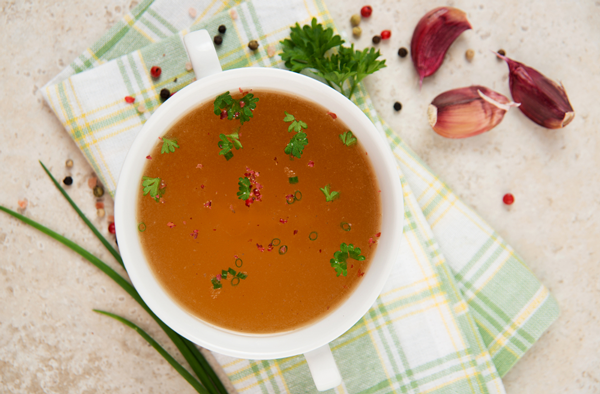With every sniffle of your kid’s nose and germ-infested door handle you touch this winter, the reality of having to use your PTO time to stay home and play nurse sets in. Ensuring that your immune system is top-notch going into the cooler weather months is a sure-fire way to reduce your risk of sick days.
Our immune system takes a beating. Between high-stress jobs, kids in daycare, sub-optimal eating habits, and exposure to environmental toxins, the immune system is constantly working on overdrive to keep us safe and healthy. It is important that simple measures are taken to provide it the tools required in order for it to function like a well-oiled machine.
Let’s discuss a few of the best ways to naturally enhance the immune system to give you super-human, germ-fighting powers through this season.
Heal Your Gut
Did you know that upwards of 80% of your immune system is housed inside your gastrointestinal (GI) tract? Yep. We have 150 times more bacterial genes in the body than we do actual human genes. So, in reality, we are more bacteria than we are human!
The GI tract plays host to both good and bad bacteria. Due to a barrage of antibiotic laden proteins, pesticide coated produce, and pharmaceutical antibiotic exposure, the bacterial ratios in our guts get imbalances and tend toward an overabundance of “bad guys” and not enough “good guys”. Therefore, shifting focus on incorporating PRO-biotics (or good bacteria) through diet and supplementation is a great way to boost your immune system.
Fermented foods, such as whole-milk kefir, sauerkraut, kombucha, kimchi, miso, natto, apple cider vinegar, beet kvass, and raw aged cheese are dietary sources of probiotics. Additionally, taking a supplemental form of a multi-strain probiotic can help to repopulate the “good guys” in your gut.
Use Food as Medicine
Whole, natural foods have a medicinal effect in the body, and when it comes to keeping viruses and other bugs at bay, some of the most potent remedies can be eaten with a meal. Garlic contains sulfur-rich compounds, such as allicin, that is responsible for the strong aroma. Since Ancient times, allicin containing foods have been used because of the potent medicinal properties which include being an anti-viral, anti-bacterial, and antifungal agent. Allicin is easily damaged through cooking, so it is recommended that you chop garlic and allow it to sit at room temperature for approximately 10 minutes in order to activate the therapeutic agents prior to heating. Maybe those vampire hunters were on to something!
Know your Numbers
Our body is a machine that operates without a glitch so long as we give the tools necessary to do so. We are the byproduct of vitamins, minerals, amino acids, fatty acids, and sugars being transported back and forth through the bloodstream. When one or more nutrients become deficient in the body, it no longer has the tools needed to work effectively. The immune system, more specifically, relies on such nutrients as Vitamin D, Vitamin A, Vitamin C, and zinc to create immune cells that help keep the body healthy. As a practitioner, I recommend having semi-annual blood tests run to assess micronutrient levels.
Foods to include ensuring a well-equipped immune system include:
- Wild-caught fish
- Pasture-raised eggs with the yolk
- Grass-fed beef
- Pasture-raised pork and lamb
- Sweet potatoes
- Pumpkin
- Carrots
- Bell peppers
- Broccoli
- Kale
- Oranges
- Kiwis
- Pumpkin seeds
My Favorite Immune Boosting Recipe:
Bone Broth
Ingredients:
- 4 quarts water
- 1 teaspoon salt
- 2 tablespoons apple cider vinegar
- 2 large onions, unpeeled and coarsely chopped
- 2 carrots, coarsely chopped
- 3 celery stalks, coarsely chopped
- 1 bunch fresh parsley
- 2-3 garlic cloves, lightly smashed
- 2-4 lbs. meat or poultry bones (organic—best option is to get from Whole Foods grocery store or a local farmer)
Instructions:
- Place all ingredients in a large slow cooker set on high.
- Bring to a boil; reduce the setting to low for 24-48 hours. (The longer it cooks, the better it tastes!)
- Strain the stock through a fine mesh strainer or coffee filter into a large bowl, and discard the waste.
- If there appears to be a layer of fat on top of broth, place in refrigerator and allow fat to harden. Then remove, but DO NOT discard fat. You can store the fat in fridge and use to cook veggies, make stir fry, cook eggs, etc.
- Keep broth in the fridge for 3-4 days. It can keep in the freezer for up to a year.
- Warm up and drink out of a mug, use broth to cook vegetables, make a soup, cook rice, etc.
Reference:
Vighi G, Marcucci F, Sensi L, Di Cara G, Frati F. Allergy and the gastrointestinal system. Clinical and Experimental Immunology. 2008;153(Suppl 1):3-6. doi:10.1111/j.1365-2249.2008.03713.x.
